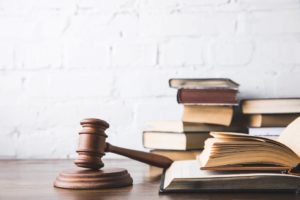Why the Court May Reject Evidence During a Criminal Trial
 If you have a criminal case, you should know that the court won’t just accept any evidence during your trial. The court can reject evidence from both the prosecution and defense. Below are some legal grounds that might make evidence inadmissible.
If you have a criminal case, you should know that the court won’t just accept any evidence during your trial. The court can reject evidence from both the prosecution and defense. Below are some legal grounds that might make evidence inadmissible.
Hearsay
Hearsay refers to out of court statements repeated in court. The statements can be oral or written. Courts typically reject hearsay evidence since they amount to nothing more than gossip. Consider a case where you face criminal charges, and a friend alleges that they heard a mutual acquaintance declare your innocence. The court is likely to reject the testimony as hearsay.
Courts only accept hearsay evidence in exceptional cases. For example, the court may accept hearsay evidence if it comprises official records or statements made during medical treatment.
Irrelevance
Evidence is only relevant if it can prove or disapprove a fact. Irrelevant evidence doesn’t contribute anything. To determine whether a piece of evidence is relevant, the court will examine whether the alleged fact is more or less believable with the evidence.
Consider a witness claims they saw you assault someone, and they remember you clearly because you had white shoes. In this case, the fact that you were intoxicated during the alleged incident is irrelevant. Your intoxication cannot prove or disapprove your shoe’s color at the time.
Character
Character evidence aims to show a person’s tendency to behave in a certain way. Consider a prosecutor who claims that a suspect is guilty of sexual assault because the suspect is promiscuous. Such a claim is character evidence, which courts rarely suspect.
Courts only allow character evidence in exceptional circumstances. For example, the court may allow character evidence from the defense side. In such cases, courts also allow prosecutors to challenge the character evidence.
Incompetence
Courts also consider the reliability or competency of evidence. Competent evidence is more likely than not true. Evidence is reliable if:
- It comes from an independent source
- It has not been contaminated or altered
- It is accurate
Consider a case where the prosecution has video footage of you near the scene of an alleged crime. The evidence is not competent if the prosecution cannot prove that the recording and the alleged crime occurred on the same day.
Illegality
The law acknowledges legal and illegal ways to get evidence. Courts should only admit legally obtained evidence. Here are some examples of circumstances that may produce illegal evidence:
- The authorities torture a suspect until they confess
- The police break into your house without a probable cause
- The authorities stop and search a person because of their race
Note that rules of evidence don’t just apply to the authorities. Even civilians must follow rules of evidence. For example, your evidence is illegal if you broke into someone’s house to obtain it.
Prejudice
Lastly, no one should produce evidence solely to arouse the court’s outrage. Such evidence is unfairly prejudicial and might make the court, especially the jury, make purely emotional decisions.
Consider a criminal suspect that the prosecution has charged with a DUI (driving under the influence) accident that injured several children. If pictures of the injured children are immaterial and irrelevant, the prosecution should not show them to the jury. Otherwise, the pictures might outrage the jury and trigger an emotional decision.
An experienced criminal attorney can help you get the right evidence for your defense. The attorney can also help you exclude prosecution evidence. Carl L Britt, Jr Attorney at Law has practiced law for decades and has the experienced to help you do just that. If you have a criminal case, contact us to help you mount the best defense possible.
